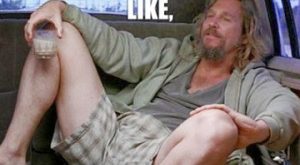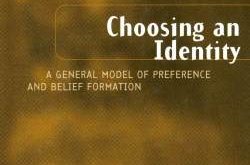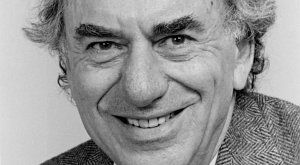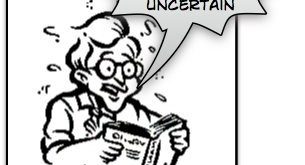Why we need pluralist economics [embedded content] The only economic analysis that mainstream economists accept is the one that takes place within the analytic-formalistic modeling strategy that makes up the core of mainstream economics. All models and theories that do not live up to the precepts of the mainstream methodological canon are pruned. You’re free to take your models — not using (mathematical) models at all is considered totally unthinkable —...
Read More »Maman
[embedded content]
Read More »How to do — and not to do — economics
How to do — and not to do — economics [embedded content][embedded content] Great lectures on how to do — and not to do — economics, delivered by a great historian and economist, Robert Skidelsky. Here you can follow them all.
Read More »Naket självutlämnande
[embedded content] Mer naken och självutlämnande musik är svår att hitta. En rak höger i solar plexus. Peter LeMarc imponerade för trettio år sedan. Det gör han fortfarande.
Read More »The M/S Estonia disaster
The M/S Estonia disaster Twenty-five years ago, on September 28, 1994, M/S Estonia was on its way from Tallinn to Stockholm with 989 people on board, when the visor in the ship’s bow door opened and the ship sank. 852 people died and 137 people survived in the worst maritime accident ever on the Baltic Sea. [embedded content]
Read More »Sargent’s ‘Nobel prize’ winning mumbo jumbo
Sargent’s ‘Nobel prize’ winning mumbo jumbo The Royal Swedish Academy of Sciences decided back in 2011 to award The Sveriges Riksbank Prize in Economic Sciences in Memory of Alfred Nobel to Thomas Sargent and Christopher Sims “for their empirical research on cause and effect in the macroeconomy”. In an interview with Thomas Sargent in The Region, the Nobel prize winner tried to defend the kind of “modern macro” he himself has been part of developing:...
Read More »The ‘rational expectations’ hoax
It can be said without great controversy that no other theoretical approach in this century has ever enjoyed the same level of ubiquity throughout the social sciences as the rational choice approach enjoys today. Despite this ubiquity, the success of the approach has been very tenuous. Its advance has been accompanied by an intense debate over its relative merit. The approach has been subject to the usual criticism of blatant inaccuracy given by outsiders to any would-be...
Read More »Hyman Minsky at 100
Hyman Minsky at 100 On the occasion of the 100th anniversary of the birth of Hyman Minsky (1919-1996) I recommend every one to listen to BBC 4 where Duncan Weldon tries to explain in what way Hyman Minsky’s thoughts on banking and finance offer a radical challenge to mainstream economic theory. As a young research stipendiate in the U.S. yours truly had the great pleasure and privilege of having Hyman Minsky as a teacher. He was a great inspiration at the...
Read More »Nobel prize winner Thomas Sargent talking absolute unadulterated horse shit
Nobel prize winner Thomas Sargent talking absolute unadulterated horse shit [embedded content] I especially love the way this Nobel laureate “explains” rational expectations: There are so many people out there, and it is so difficult to know how each one of them thinks about the future. So let’s just assume they think the same. Problem solved. And that absolute nonsense reasoning rendered this guy a ‘Nobel prize’ in economics! The tiny little problem that...
Read More »Greta Thunberg on the leaders that have failed us
Greta Thunberg on the leaders that have failed us [embedded content] We are in the middle of a climate breakdown, and all they can talk about is money and fairytales of eternal economic growth In the postwar period, it has become increasingly clear that economic growth has not only brought greater prosperity. The other side of growth, in the form of pollution, contamination, wastage of resources, and climate change, has emerged as perhaps the greatest...
Read More » Lars P. Syll
Lars P. Syll






